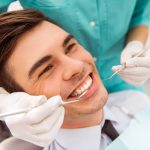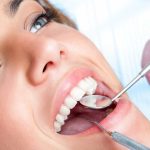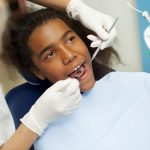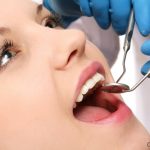When Can I Eat Chicken After Wisdom Teeth Removal? Expert Advice
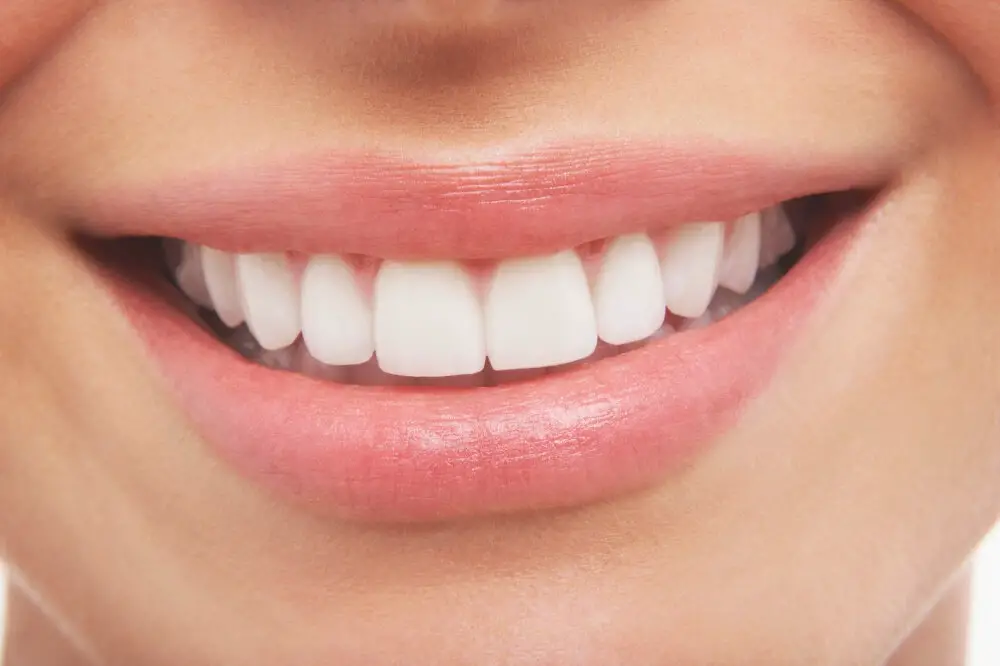
Wisdom teeth removal is a common dental procedure that can cause discomfort and inconvenience. Patients who undergo this surgery often have many questions regarding their postoperative care, including when they can resume their regular diet. One common question that arises is when it is safe to eat chicken after wisdom teeth removal. As a dental expert, I am here to provide you with advice on this topic. After wisdom teeth removal, patients are advised to follow a soft food diet for a few days to avoid any damage or irritation to the surgical site. Chicken is a common protein source in many diets, and patients may wonder when they can incorporate it back into their meals. While it is essential to listen to your dentist’s specific instructions, there are general guidelines you can follow to ensure a smooth recovery process. In this article, we will explore when it is safe to eat chicken after wisdom teeth removal and what considerations you should keep in mind.
Wisdom teeth removal is a common oral surgery that involves the extraction of one or more of the third molars located at the back of the mouth. These teeth typically emerge during early adulthood and can cause problems such as overcrowding, impaction, or infection. The procedure is typically performed under local or general anesthesia and involves making an incision in the gum tissue to access the tooth and its root. The tooth is then carefully loosened and removed, and the area is cleaned and stitched back up. After the surgery, patients may experience some pain, swelling, and bleeding, and are advised to follow a soft food diet for a few days until the area has fully healed.
Following postoperative instructions is essential for the successful recovery of a patient after a surgical procedure. These instructions are designed to minimize the risk of complications, promote healing, and ensure the patient’s comfort. In the case of wisdom teeth removal, following the postoperative instructions provided by the dentist or oral surgeon can significantly reduce the risk of dry socket, infection, and other complications. Such instructions may include restrictions on certain foods, activities, and medications, as well as guidelines for pain management and oral hygiene. By adhering to these instructions, patients can ensure a faster and smoother recovery, allowing them to return to their daily routines as soon as possible.
What to eat after wisdom teeth removal

After wisdom teeth removal, it is important to follow a soft food diet to allow the surgical site to heal properly. During the first few days, it is recommended to consume cold and soft foods such as ice cream, yogurt, smoothies, and mashed potatoes. These foods will help reduce swelling and inflammation while also providing the necessary nutrients for recovery. It is crucial to avoid hot and spicy foods, as they can cause discomfort and irritation to the surgical site. Additionally, hard and crunchy foods, such as chips and nuts, should be avoided to prevent any damage or disruption to the surgical area. As the healing progresses, patients can gradually reintroduce semi-solid foods such as eggs, pasta, and cooked vegetables. It is important to still avoid foods that require excessive chewing, as this can cause discomfort and prolong the healing process. Patients should also avoid using straws, as the suction can dislodge blood clots and hinder the healing process. It is essential to maintain good oral hygiene by gently brushing and rinsing the mouth with saltwater to prevent infections. Ultimately, a soft food diet can help speed up the recovery process and ensure a smooth and successful healing.
After wisdom teeth removal, it is essential to follow a soft food and liquid diet for a few days to avoid irritating the surgical site. Soft foods that are safe to eat include mashed potatoes, scrambled eggs, oatmeal, yogurt, smoothies, and soups. These foods are easy to chew and swallow, and they won’t cause any harm to the surgical site. Liquids such as water, apple juice, and coconut water are also safe to consume. However, it is best to avoid using straws as they can dislodge the blood clot, which is necessary for the healing process. Overall, sticking to a soft food and liquid diet can help speed up the recovery process and prevent any complications.
Avoiding crunchy, spicy, or acidic foods is crucial after wisdom teeth removal surgery. These types of foods can irritate the gum tissue and delay the healing process. Crunchy foods can also get stuck in the sockets, causing discomfort and increasing the risk of infection. Spicy and acidic foods can cause a burning sensation and further aggravate the sensitive area. It’s important to stick to soft, easy-to-chew foods like mashed potatoes, soup, and scrambled eggs for the first few days after surgery. Gradually introducing solid foods as the healing progresses can help ensure a smooth and speedy recovery.
When can I start eating chicken after wisdom teeth removal?
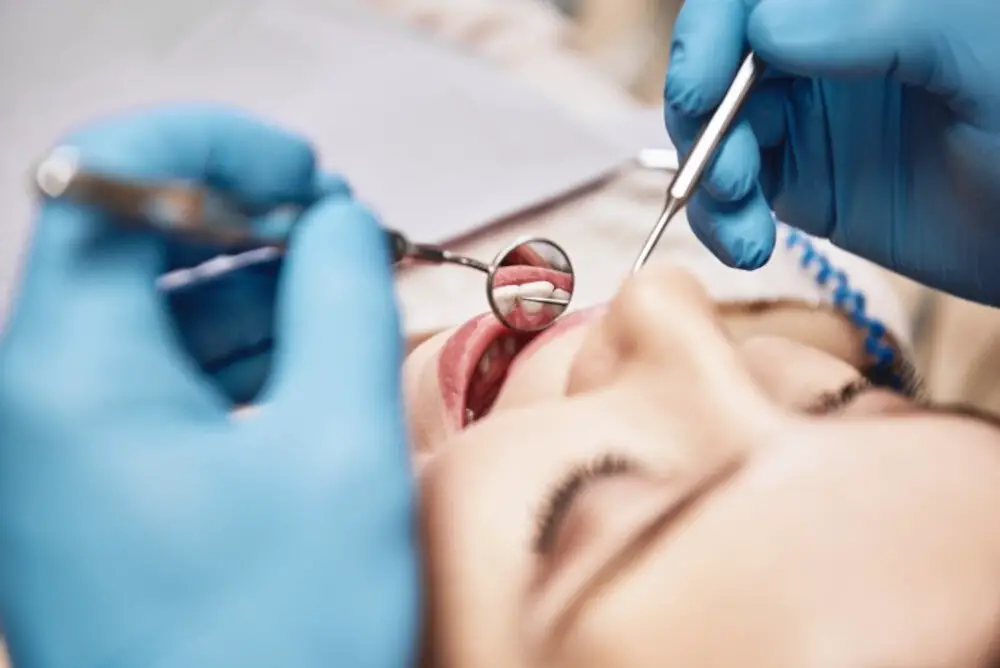
After wisdom teeth removal, it’s essential to follow a strict diet plan to ensure proper healing and avoid any complications. One of the most common questions asked by patients is when they can start eating chicken. Generally, chicken is considered a safer option than red meat or tough meats, which can be difficult to chew and may cause pain or damage to the surgical site. However, it’s important to note that the timing of when you can eat chicken after wisdom teeth removal may vary depending on your individual healing process. In most cases, patients can start eating chicken 3-4 days after wisdom teeth removal. However, it’s crucial to ensure that the chicken is cooked thoroughly and cut into small, bite-sized pieces. It’s also recommended to avoid any spicy or acidic seasonings that may irritate the surgical site. Additionally, patients should avoid using a straw while drinking liquids or eating soups, as the sucking motion may dislodge the blood clot and delay the healing process. Overall, it’s important to listen to your body and follow the instructions provided by your dentist or oral surgeon to ensure a smooth and speedy recovery.
The healing process after wisdom teeth removal is a complex and intricate process that involves several stages. Initially, the body forms a blood clot in the extraction site, which helps to protect the area from infection and promote healing. Over time, the blood clot will dissolve, and new tissue will begin to grow in its place. During this phase, it is important to follow proper post-operative care, including eating soft foods and avoiding smoking or using straws. As the tissue continues to heal, patients may experience some swelling and discomfort, but this should gradually subside over time. Ultimately, the healing process can take several weeks, but with proper care and attention, most patients are able to fully recover and resume their normal activities.
It’s crucial to wait before eating chicken after wisdom teeth removal due to the risk of developing post-operative complications. The extraction site is still healing, and consuming solid foods can dislodge the blood clot, leading to dry socket, a painful condition that can delay the recovery process. Additionally, chicken meat can be tough and require significant chewing, which can cause irritation and discomfort on the sensitive surgical site. Therefore, it’s recommended to stick to soft, easy-to-eat foods like soup or mashed potatoes for the first few days after surgery to ensure a smooth and speedy recovery.
The timeline for reintroducing chicken after wisdom teeth removal can be influenced by various factors, including the type of extraction, the number of teeth removed, and the patient’s healing process. If the extraction was a simple one and only one or two teeth were removed, the timeline may be shorter. However, if it was a more complicated extraction or multiple teeth were removed, the timeline may be longer. Additionally, the patient’s overall health and immune system, as well as their ability to follow post-operative care instructions, can also affect the timeline. It is important to consult with a dental professional to determine the appropriate timeline for reintroducing chicken and other foods after wisdom teeth removal.
How to introduce chicken back into your diet after wisdom teeth removal
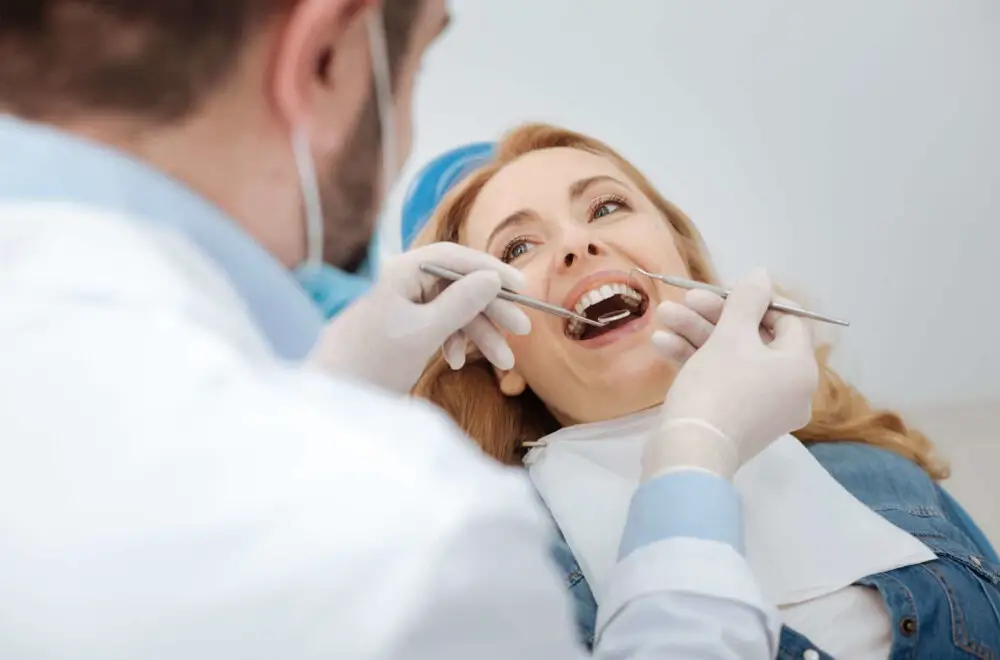
After wisdom teeth removal, it is essential to follow a strict diet to ensure proper healing and avoid any complications. Chicken is a great source of protein and a staple in many diets. However, it can be challenging to reintroduce chicken into your diet after wisdom teeth removal. It is crucial to start slowly and gradually increase your intake to avoid any discomfort or pain. The first step in introducing chicken back into your diet is to start with soft, easily chewable options such as ground chicken or shredded chicken. Avoid any tough or chewy cuts of chicken as they may cause discomfort or pain. As you progress, you can start adding more variety to your meals by including grilled or roasted chicken. It is essential to cut the chicken into small, bite-sized pieces to make it easier to chew and digest. Additionally, make sure to chew your food slowly and avoid swallowing large pieces to prevent any complications. By following these tips, you can successfully reintroduce chicken into your diet after wisdom teeth removal and enjoy a healthy, protein-rich meal.
After undergoing wisdom teeth removal, it is important to follow a careful diet that promotes healing and avoids any complications. When it comes to incorporating chicken into your diet, it is recommended to start with small amounts of soft, shredded, or pureed chicken to avoid any discomfort or irritation to the extraction sites. Chicken is a great source of protein which can aid in the healing process, and it is also a versatile ingredient that can be prepared in many different ways. However, it is important to avoid any tough or chewy pieces of chicken that can cause discomfort or even damage to the extraction sites. By starting with small amounts of soft chicken, you can gradually introduce more solid foods into your diet and ensure a smooth recovery after wisdom teeth removal.
Gradually increasing the size and texture of chicken is an important aspect of a post-wisdom teeth removal diet. It is recommended to start with soft, mashed chicken and gradually move towards solid pieces as the healing process progresses. This not only ensures that the chicken is easy to chew and swallow but also minimizes the risk of damaging the surgical site. It is also advisable to avoid spicy or acidic seasonings that may irritate the area. Incorporating chicken into the diet can provide essential protein and nutrients for healing, but it is important to follow the instructions provided by the dentist or oral surgeon to ensure a smooth recovery.
Chewing carefully is of utmost importance, especially after wisdom teeth removal. The reason being, when we chew, the food is broken down into smaller pieces, making it easier for our digestive system to process it. However, if a person doesn’t chew their food properly, it can lead to various problems such as choking, indigestion, and stomach pain. Moreover, after wisdom teeth removal, the process of chewing becomes even more critical as it helps in preventing food particles from getting stuck in the extraction site, which can lead to infection and delayed healing. Hence, it is highly recommended to chew your food slowly and carefully, taking small bites at a time to avoid any complications.
Other tips for a smooth recovery

Aside from waiting the recommended time before eating chicken after wisdom teeth removal, there are other tips to ensure a smooth recovery process. One of the important things to consider is following the post-operative instructions given by your dentist or oral surgeon. This includes taking the prescribed pain medications, getting enough rest, and avoiding activities that can disrupt the healing process. Additionally, avoiding smoking and alcohol consumption can help prevent complications and promote faster healing. Another important tip for a smooth recovery is to maintain good oral hygiene. While you may need to avoid brushing near the extraction site for the first few days, you should still brush and floss your other teeth to prevent the buildup of bacteria and plaque. Rinsing your mouth with warm saltwater can also help reduce swelling and promote healing. It’s also important to choose soft foods that are easy to chew and swallow, and avoid hard, crunchy, or sticky foods that can irritate the extraction site. By following these tips, you can ensure a faster and more comfortable recovery from wisdom teeth removal.
Managing pain and swelling after wisdom teeth removal is crucial for a smooth and speedy recovery. To alleviate discomfort, patients are typically advised to take pain medication as prescribed by their dentist or oral surgeon. Other remedies include applying ice packs to the affected area for 20 minutes at a time, resting, and avoiding strenuous exercise. Additionally, patients should focus on maintaining a soft-food diet for the first few days post-surgery and avoid consuming hard, crunchy, and spicy foods that could irritate the surgical site. By following these guidelines and getting plenty of rest, patients can reduce swelling and discomfort, allowing them to return to their daily routine sooner.
Maintaining good oral hygiene is crucial after wisdom teeth removal to prevent infections and promote healing. It is recommended to avoid brushing the extraction site for the first 24 hours, but gently rinsing with saltwater can help reduce swelling and promote healing. After 24 hours, gently brushing the teeth and tongue twice a day is important to remove food particles and bacteria. Flossing should also be done carefully to avoid irritating the extraction site. It is important to avoid smoking, drinking through straws, and eating hard or crunchy foods for the first few days after the procedure. By maintaining good oral hygiene, patients can reduce the risk of complications and ensure a faster and smoother recovery.
Avoiding smoking and drinking alcohol is crucial after wisdom teeth removal surgery. Smoking can hinder the healing process by reducing blood flow to the surgical site, while alcohol can interfere with the effectiveness of pain medications and cause excessive bleeding. Smoking can also increase the risk of infection and dry socket, a painful condition that occurs when the blood clot in the socket is dislodged. Alcohol, on the other hand, can cause dehydration, which can delay healing and make it harder for the body to fight infection. It’s important to follow your dentist’s instructions and avoid smoking and drinking alcohol for at least 24-48 hours after surgery to ensure a smooth recovery.
In summary, it is important to wait at least 24 hours after wisdom teeth extraction before consuming any solid foods, including chicken. Soft and pureed foods are recommended during the initial recovery period to avoid any damage to the surgical site. After the first 24 hours, patients can gradually introduce solid foods, including chicken, back into their diet as long as they are cut into small pieces and chewed carefully. It is also important to avoid any spicy or acidic foods that may irritate the extraction site. Proper oral hygiene, including gentle brushing and saltwater rinses, can help promote healing and prevent infection. As always, it is best to consult with your dentist or oral surgeon for specific post-operative instructions.
Following postoperative instructions is extremely important after any type of surgery, including wisdom teeth removal. These instructions are designed to promote proper healing and prevent complications such as infections or bleeding. It is important to follow these instructions carefully and fully in order to ensure a smooth recovery process. This includes avoiding certain foods, taking prescribed medication as directed, and keeping the surgical site clean. Failure to follow these instructions can result in prolonged healing time, increased pain, and further complications. It is crucial to prioritize your health and follow the advice of your dental or medical professional in order to ensure the best possible outcome after surgery.
It’s crucial to remember that everyone’s healing process is different, and complications can arise after wisdom teeth removal. That’s why it’s essential to consult with your dentist or oral surgeon if you have any concerns. They are the experts in post-operative care and can provide you with the best advice on when to resume your regular diet. Ignoring any discomfort or abnormal symptoms can lead to further complications, including infection or delayed healing. So, if you have any doubts or questions about your recovery, don’t hesitate to reach out to your dental professional for guidance.
Conclusion
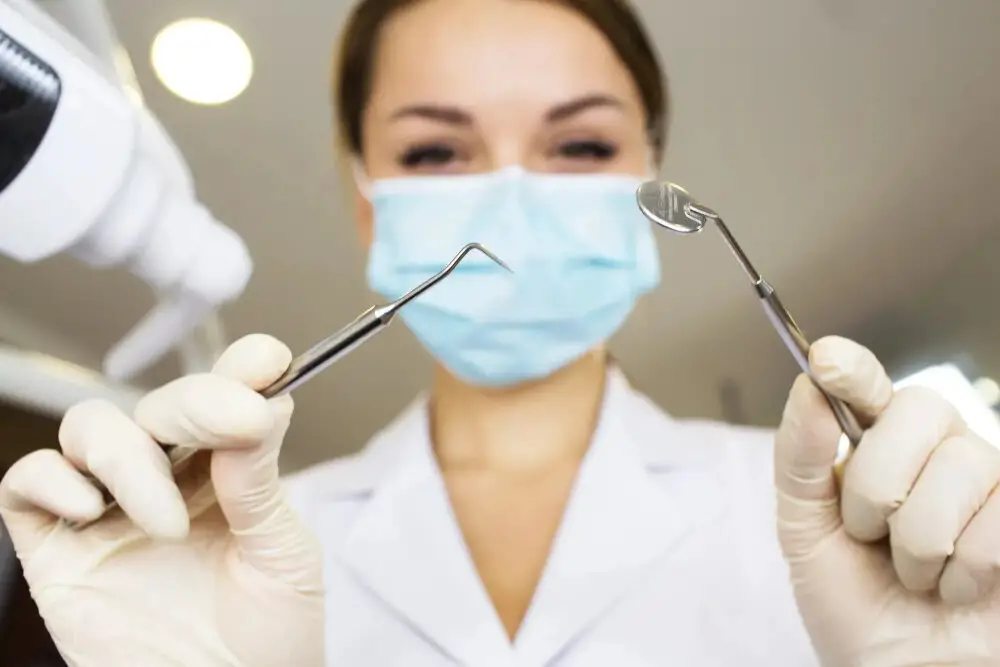
In conclusion, it is important to follow the post-operative instructions given by your dentist or oral surgeon after wisdom teeth removal. While it may be tempting to resume your regular diet, it is recommended to avoid eating chicken or any other solid foods until at least three days after the procedure. Soft and easy-to-eat foods such as soup, mashed potatoes, and smoothies are ideal during the initial recovery period. It is also important to maintain good oral hygiene and avoid smoking or using a straw to prevent any further complications. By following these guidelines, you can ensure a smooth and speedy recovery after your wisdom teeth removal surgery.

